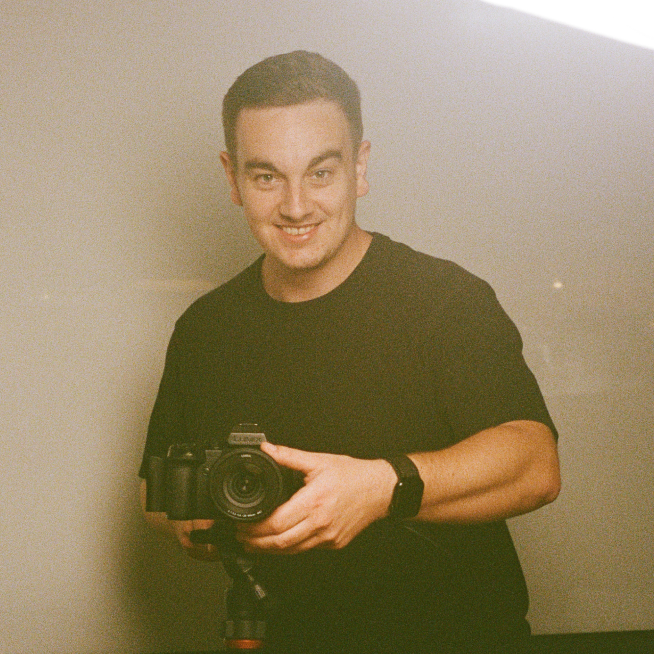In 2019, Daniel Vassallo left his $500k job at Amazon to go indie. In the 2 years since, he’s built a portfolio of small bets (something he’s become known for) making $570k in the process. Daniel has seen success from his info products and building his audience on Twitter— which has grown from 0 to 92k. Most recently, Daniel has been embarking on a hand made cutting board side-business, or small bet as he would call it.
I recently interviewed him on the Indie Bites podcast, where we spoke for 15 minutes about why he’s bullish on small bets, how to design your life and the tactics to grow your twitter audience.
Why I interviewed Daniel
I discovered Daniel after listening to his interview on the Indie Hackers podcast which immediately led me to follow him on Twitter and reading his “Only Intrinsic Motivation Lasts” article which went viral. From here I started to explore more of Daniel's work and what he stood for, and I was hooked on the idea of building a “portfolio of small bets”.
Many indies with shiny object syndrome, like myself, love the portfolio approach to side-projects. However, it is still split into camps of those that strongly suggest you focus on one thing and those that are more in favour of taking on multiple side projects. But after recording this episode I felt inspired to start more things and definitely not feel guilty about it.
Why this is important for indie hackers
Many indie hackers are pursuing the dream of leaving our jobs to go full-time on our side-projects, me included with this podcast. However, we can work on it for months and see little traction, get disheartened or wonder if it will never work out.
The beauty of small bets is that you can try a bunch of different things that inspire you, and figure out what you enjoy most and what works best.
One key takeaway
Small bets de-risk your chance of failure, so start many things and enjoy it while you do it.
When Daniel first left his well paid job at Amazon he went to start a bootstrapped software product called Userbase but then asked himself “Are you sure it’s wise to put all your eggs in one basket?”
To maximise his odds of surviving as a self-employed person he opted to build a portfolio of things. That way, if one thing fails or doesn’t work out as well, you have other options to fall back on.
The episode in 6 points
- If you’re unhappy, change something. This stood out to me in particular where Daniel was explaining his reasons for leaving a $500k job at Amazon: “I realised I would be deluding myself staying for the money…I looked around me and realised I didn’t envy anyone’s lifestyle, no matter how much money or how many levels above me they were”.
- Time box small projects, with the emphasis on the projects being small. Daniel created his Everyone Can Build a Twitter Audience course in 16 hours, which has made $250,000 at the time of writing. If you can set a date for creating and releasing something, even if it’s a SaaS, you avoid the dreaded slow ramp of death. If it doesn’t work out, don’t worry. Move onto the next thing.
- Info products can work well with the small bets strategy, as they are very easy to time box and you often you’ll have a lot of knowledge built up in a particular area or industry that you can package up. Daniel did this very thing with his first product, The Good Parts of AWS, having started to share all of his knowledge working at Amazon with his Twitter audience. If you want to do this for yourself, write down a list of things you know a lot about, set aside a weekend and package it into a PDF or screencast.
- Daniel talks about how we can look at book publishers who apply a small bets strategy at a large scale. Only the top authors ever make any money for the publishers, and they fund the smaller authors. But they publish hundreds of authors so they can find those that work well. This is similar strategy to VCs and record labels, and one we can employ as indie hackers.
- Variable revenue can lead to creative solutions. When I asked Daniel how he found switching away from a fixed, stable income he said it took a while to get used to. When things are good, he could coast along or use his time to take up new hobbies. But when the income level drops it leads him to come up with new promotions or even new product ideas. I’ve found this to be true for myself too.
- Growing your Twitter audience, like Daniel has, is all about credibility and documenting as much as you can but for a specific audience. This rings true with much of the building in public advice we often hear. So just share what you’re working on and what you’re learning from it. But remember that if you don’t tweet, your Twitter audience won’t grow.
Recommendations
- Book: Anti Fragile by Nassim Taleb
- Podcast: Indie Hackers
- Indie Hacker: Peter Askew
The podcast episode
This article was a summary of the podcast I recorded with Daniel Vassallo on Indie Bites, the show where I share stories of indie hackers in a 15 minute episode. I also released an uncut 80 minute recording with Daniel on my Indie Feast membership, which is just £4 p/m.
